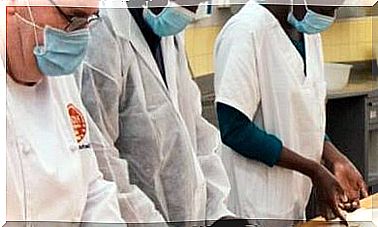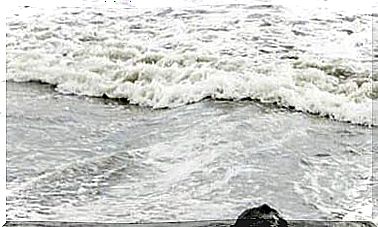Neuroscience Can Improve Education
The first week of March the III International Neuroeducation Congress is held online, which will bring together the leading national and international experts to reflect on the contributions of neuroscience in the field of learning.

The philosopher Marina Garcés, the specialist in innovation Alfons Cornella and the professor of neuroeducation Trace Tokuhama will be the protagonists of the III International Congress of Neuroeducation on line that will be held on March 4, 5 and 6, 2021 under the slogan “Synergies for the re meeting”. The congress will collect trends and discoveries in neuroscience related to the field of education, innovation and learning in the digital age.
Anna Forés and David Bueno, promoters of this event, point out that “our goal is to reflect, share and get excited”. “It is about accompanying and promoting the growth of teachers, educators, pedagogues, psychologists and psychopedagogues and for this the congress will offer brain talks (conferences) always of a very practical nature with international speakers who have a great scientific base”, they point out
A congress to rethink education
Anna Forés has a doctorate in philosophy and a degree in pedagogy; and David Bueno is a doctor of biology and a genetic researcher. Both are professors at the University of Barcelona and UB-EDU1ST Neuroeducation Professors. They have just coordinated the book The educational practice with a neuroscientific look (Editorial Horsori).
The philosopher Marina Garcés, professor at the Open University of Catalonia and author, among others, of the books A common world, Unfinished Philosophy, Out of class and School for apprentices, will give the presentation “War of brains” on March 4 at 6:00 p.m.
In it, the philosopher and writer will reflect on how to rethink education. “Who can reprogram, train or improve our brain? Going from the question of how to the question of who reveals new factors of social inequality that apparently are not perceived in discourses that, due to their scientific condition, appear to be political neutrality”, anticipates the philosopher.
Tracey Tokuhama, professor at Harvard University (Extension School), where she teaches the course “The neuroscience of learning: an introduction to the science of the mind, the brain, health and education”, affirms that “the objective of this meeting it is to celebrate the opportunities we have to improve teaching practice thanks to technology and new knowledge about the learning sciences. “
Tokuhama was a member of the expert committee of the Organization for Economic Cooperation and Development (OECD) to determine the new basic pedagogical knowledge based on contributions from neuroscience and technology from all teachers. He has worked with public and private entities to improve the quality of education in the world.
Personalize and differentiate learning
“There is no better time to be an educator” is the title of his brain talk (conference), which will take place on March 5 at 4.30 pm. How can we make good decisions about teaching online? How and why is learning science complementary to online learning? How can we personalize and differentiate learning? These are the essential questions Tokuhama will ask himself.
What will education be most suitable for humans in a world of intelligent machines? This is the question that Alfons Cornella will answer in his brain talk “Evidence-based education in a world of intelligent machines”, on March 6 at 5:20 pm.
“In the coming years we will have to try new ways of educating and learning and we will have to scientifically read what works and what does not, based, therefore, on the evidence. The future of education will go through a better understanding of how the human brain works at the same time. time to learn and to systematically analyze the practices carried out by thousands of experimental projects around the world. We will put examples of all this in the presentation “, explains Cornella.
Three debates with the best experts in neuroeducation
These three speakers will also participate in different brain nets (debates) together with other experts in neuroeducation, such as the promoters of the congress David Bueno and Anna Forés, along with Ana M. Fernández, Marta Ligioiz, Rosa Casafont, Fabián Román, Mónica Alonso and Gilberto Finch. Jesús Guillén, creator of the blog Escuela con cerebro, will also participate and also lead the online congress.
You can check the program at this link.
The decalogue of neuroscience to improve education
1. Efficient learning is not a friend of fear and chronic stress blocks it.
2. Curiosity, attention and surprise are doors of efficient learning.
3. “Play is the disguise for learning,” says Mora, if we feel good about learning we want to learn more.
4. Physical activity has great benefits for the brain: it improves cognitive performance, executive functions and facilitates learning.
5. Explaining stories also facilitates learning and assimilation of concepts, since it activates the social brain.
6. Any activity that encourages imagination (theater, drawing, etc.) optimizes neural functioning.
7. Respecting the hours of sleep in adolescents who need more sleep and letting them enter the institute a little later has been shown to be beneficial.
8. Considering students in a personalized way and respecting their learning pace is necessary because each brain is unique and not all students experience the same thing at the same time.
9. Dialogue, share and work in a group facilitates learning. Our brain is social.
10. Exercising executive functions, which are those that help you plan and make reasonable decisions, manage emotions and make behavior more flexible, is essential for success in life. It is good to leave the students to plan and decide their activities by guiding them according to their age.









